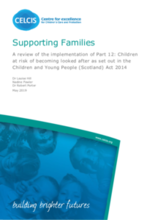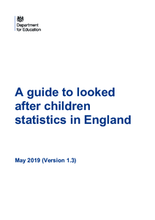Displaying 611 - 620 of 1177
This paper asks how state parental responsibility towards unaccompanied minors is given meaning, and with what consequences, for both frontline workers and unaccompanied minors alike?
This year's education conference will focus on positive educational journeys for children and young people with care experience.
In this blog post for Hope and Homes for Children, Stephen Ucembe writes about the damaging impacts of orphanages in the African context.
This guest blog post for the Howard League, written by Sam Turner of the charity Become, explores what care-experienced young people in the UK have told the charity about their interactions with the police.
This review aimed to identify, appraise and synthesise published literature concerned with the reunification of looked after children with their birth parents in the UK.
This paper examines the use of Family Group Conferences (FGCs) in engaging with looked after children.
The objective of this research project was to profile the experiences of survivors abused in long-term child care in Scotland, and to develop a model which linked maltreatment, risk and protective factors, and outcomes.
"Nearly 2,000 children in care were reported missing to the police last year [in Scotland," says this article from the Scotsman.
The purpose of this research was to gather opinions on, and experiences of, implementation of Part 12: Services in relation to children at risk of becoming looked after, etc. of the Children and Young People (Scotland) Act 2014.
This document provides a guide to looked after children statistics published by the UK Department for Education.


